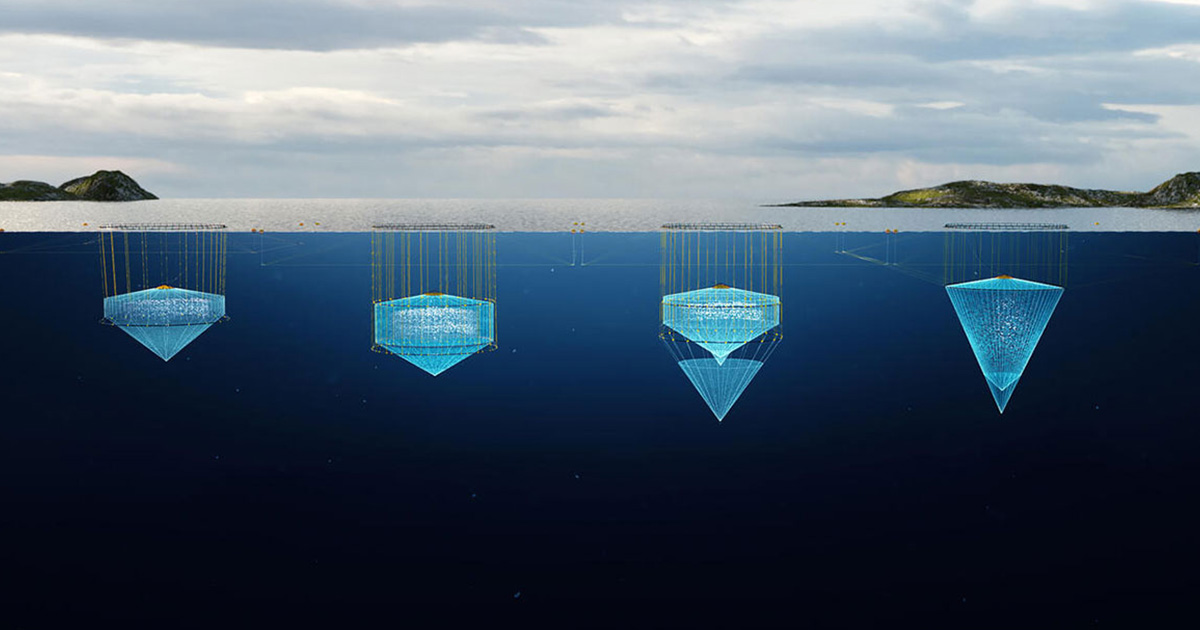One persistent nemesis for sustainable aquaculture has been salmon lice. The tide may be turning with innovative solutions that dive deeper than ever before. By lowering the net to a depth where the lice don't thrive, thus separating the salmon from the lice, the lice problem can be significantly reduced.
AKVA group`s approach is promising. SinkabergHansen who has been AKVA group`s partner in the development of deep farming, demonstrated the efficacy of this approach. Fish harvested from the deep waters at Klungset in Trøndelag never needed any lice treatment, marking a significant milestone in aquaculture.
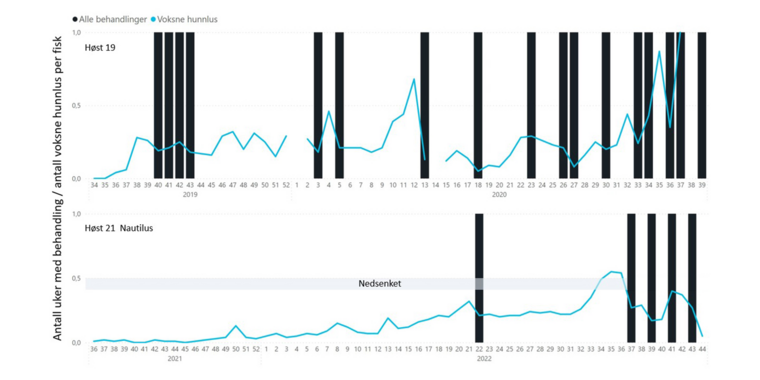 The figure shows low lice numbers and significantly fewer lice treatments when using Nautilus pens compared to the previous period with traditional operation. Seven Nautilus pens were submerged for 14 months. During that period, only one pen had to be treated. After surfacing the pens, the fish remained on the surface for a period until harvest. A small number of mechanical treatments were then carried out, because of lice infection. (Image credit: Official data from Barentswatch)
The figure shows low lice numbers and significantly fewer lice treatments when using Nautilus pens compared to the previous period with traditional operation. Seven Nautilus pens were submerged for 14 months. During that period, only one pen had to be treated. After surfacing the pens, the fish remained on the surface for a period until harvest. A small number of mechanical treatments were then carried out, because of lice infection. (Image credit: Official data from Barentswatch)
Innovation in the Depths
By submerging fish populations out of sight but within controlled environments monitored by lice-identifying cameras, AKVA group is reshaping the paradigm of fish farming. The use of advanced technology can not only reduce the challenges posed by lice but also decrease energy consumption by almost 70% through underwater feeding.
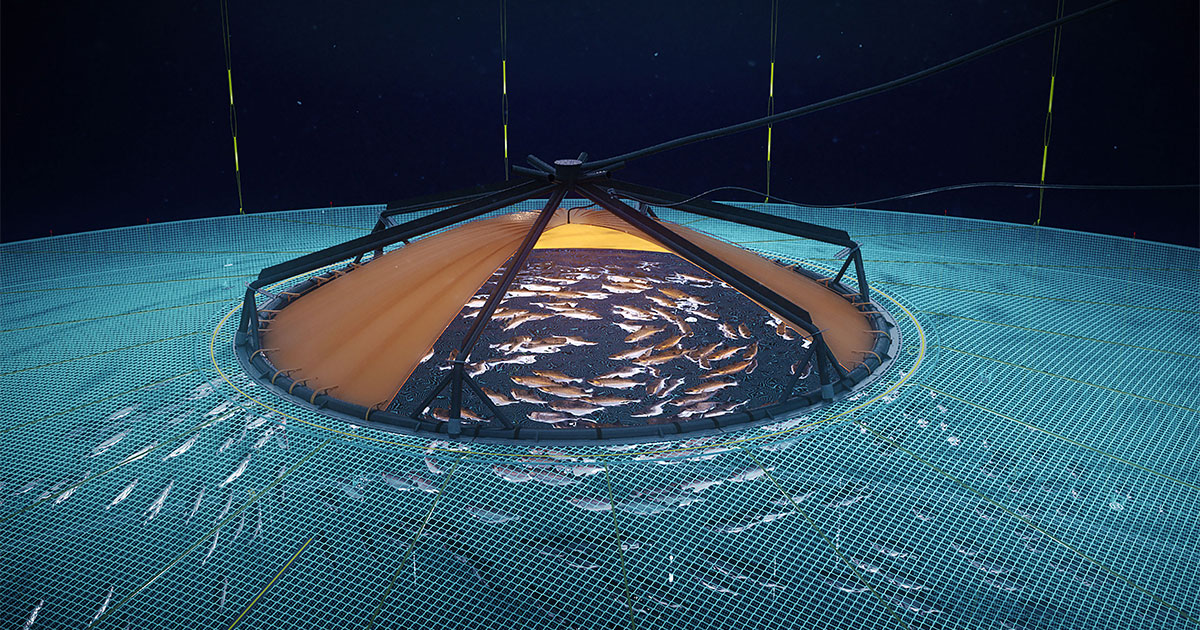 The principle for filling a swim bladder in an air dome in Nautilus. (Image credit: AKVA group)
The principle for filling a swim bladder in an air dome in Nautilus. (Image credit: AKVA group)
Multiple releases of Nautilus pens, spanning generations, have showcased results: robust fish growth, good feed factor, and high-quality harvests with minimal lice impact. This success hasn't gone unnoticed. Industry giants like Cermaq are eagerly adopting these methods after witnessing the positive outcomes at SinkabergHansen. Cermaq put the Nautilus concept into use in June 2023.
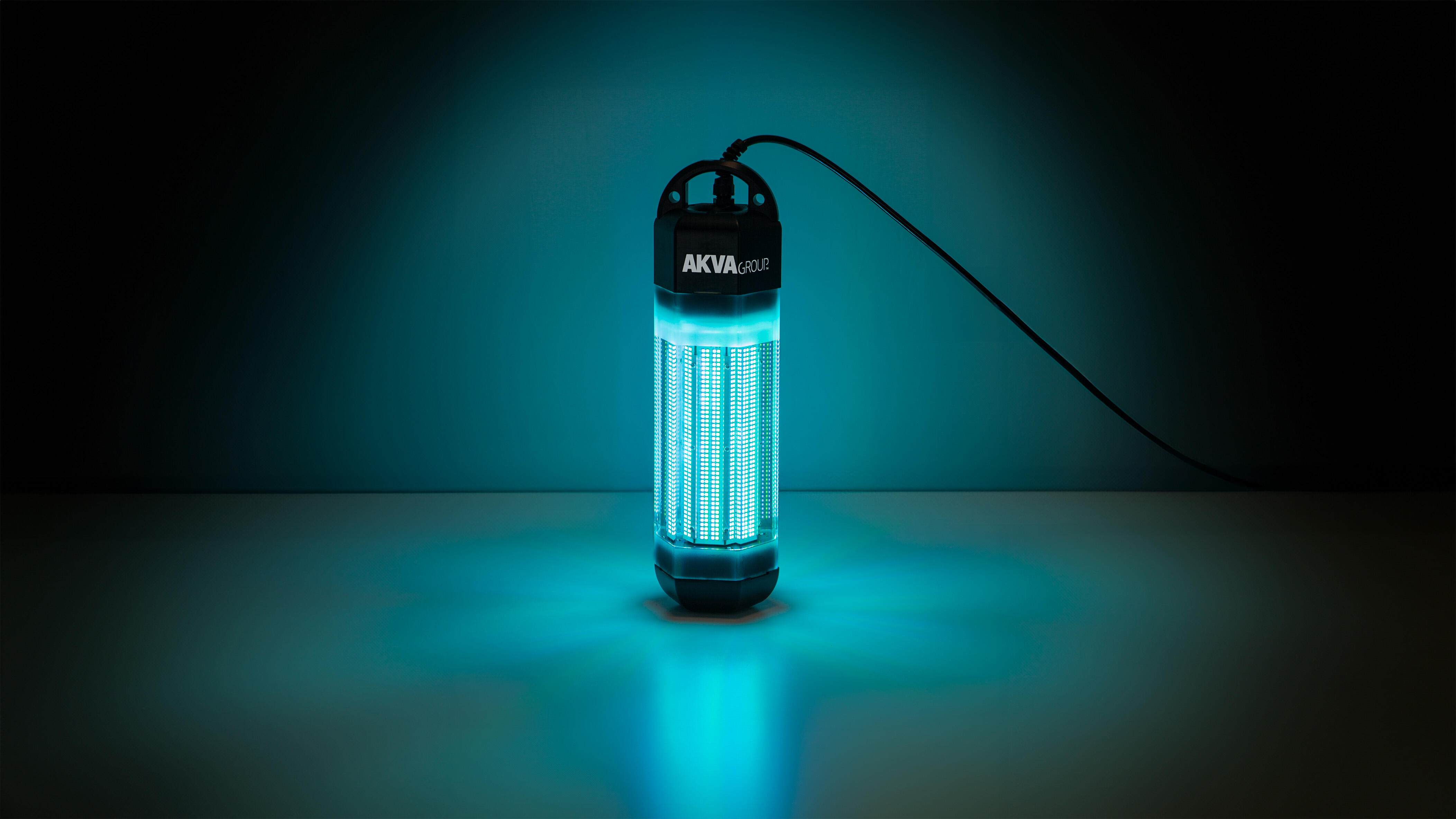 AKVA sublumin is AKVA group's latest underwater light, combining quality with an affordable price for your fish pens. With an impressive depth capability of up to 80 meters, AKVA sublumin meets the requirements for a robust and reliable solution in deep farming operations. (Image credit: AKVA group)
AKVA sublumin is AKVA group's latest underwater light, combining quality with an affordable price for your fish pens. With an impressive depth capability of up to 80 meters, AKVA sublumin meets the requirements for a robust and reliable solution in deep farming operations. (Image credit: AKVA group)
"Nautilus has spared us multiple delousing operations. While none were needed for the Nautilus pens, several were conducted in the conventional pens from which the Nautilus population was separated. We've observed good growth rates accounting for the relevant temperature. I am pleased with the Nautilus concept and the support provided by AKVA group. Additionally, we've saved net cleaning for 5 months, which, combined with the reduction in delousing operations, significantly minimizes manual handling of fish and equipment. Considering that most escape incidents are linked to manual operations, we see Nautilus as a concept that reduces the risk of escapes," says Harald Takle, Head of Strategy and Seawater Innovation, Cermaq.
Years of Dedication and Collaboration
This innovative leap didn't happen overnight. AKVA group's journey involved extensive research collaborations with entities like SINTEF Ocean and the Norwegian Institute of Marine Research. Through joint ventures with SinkabergHansen and persistent dedication, the Atlantis Subsea Farming project evolved into Nautilus, demonstrating consistent effectiveness in combating lice infestations.
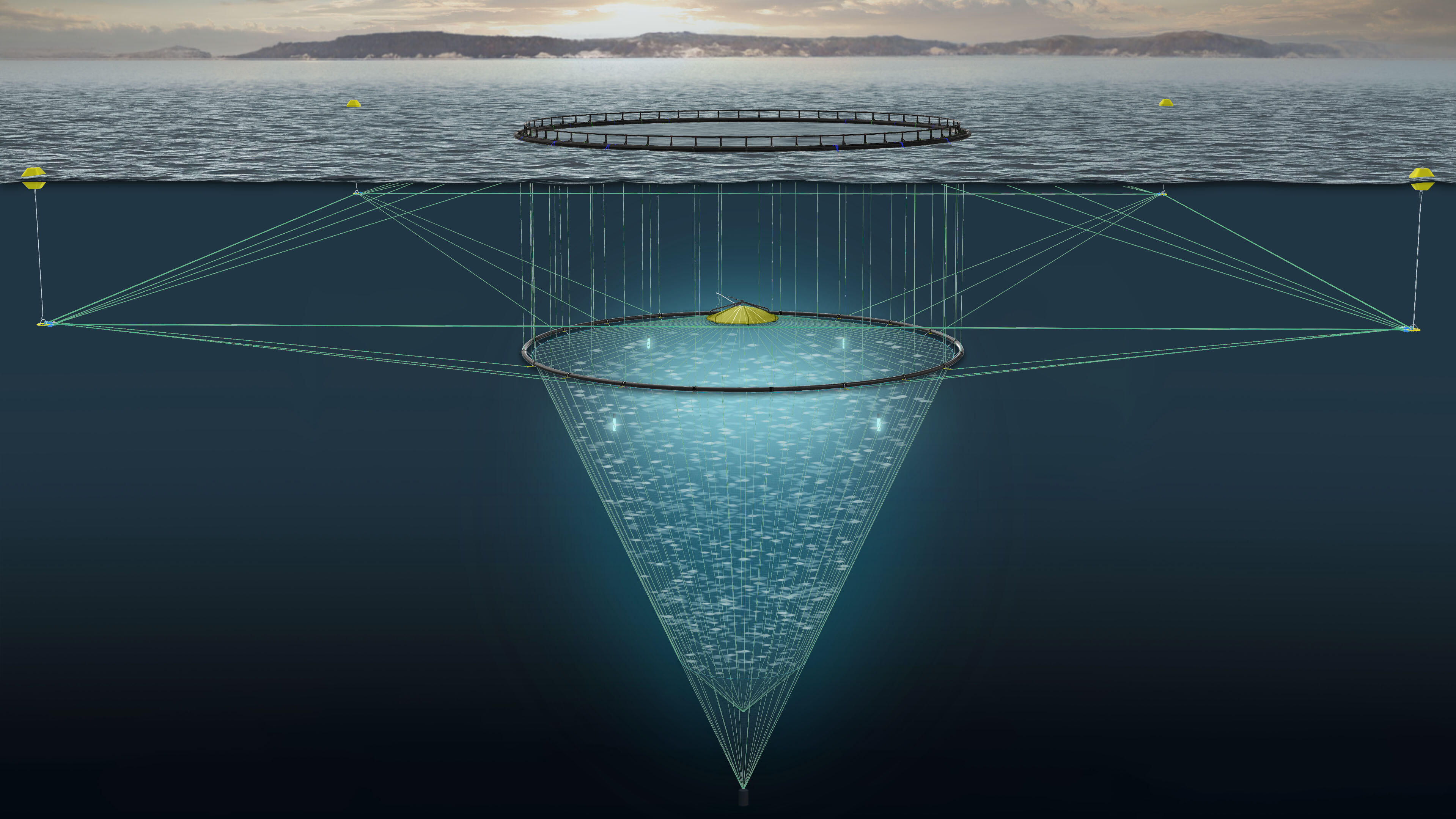 Omega provides a more stable fish farming environment and helps maintain the well-being and growth of fish by ensuring a large net volume in the most exposed locations. (Image credit: AKVA group)
Omega provides a more stable fish farming environment and helps maintain the well-being and growth of fish by ensuring a large net volume in the most exposed locations. (Image credit: AKVA group)
Looking forward, AKVA group continues to refine these methods, making them more accessible and user-friendly for farmers. The Nautilus concept, though effective, demands dedication and the evolution of new routines. Simultaneously, AKVA group is diversifying its arsenal against lice with solutions like OptiCage, addressing the challenge from multiple angles.
Good Solutions for Deep Farming
AKVA group's commitment extends beyond the deep farming itself, such as AKVA sublumin for deep underwater lighting, biomass and lice control camera AKVA submerged, high-quality mooring systems compatible with deep farming concepts like Nautilus, and the development of hybrid waterborne feeding systems, demonstrate their multifaceted approach to aquaculture sustainability.
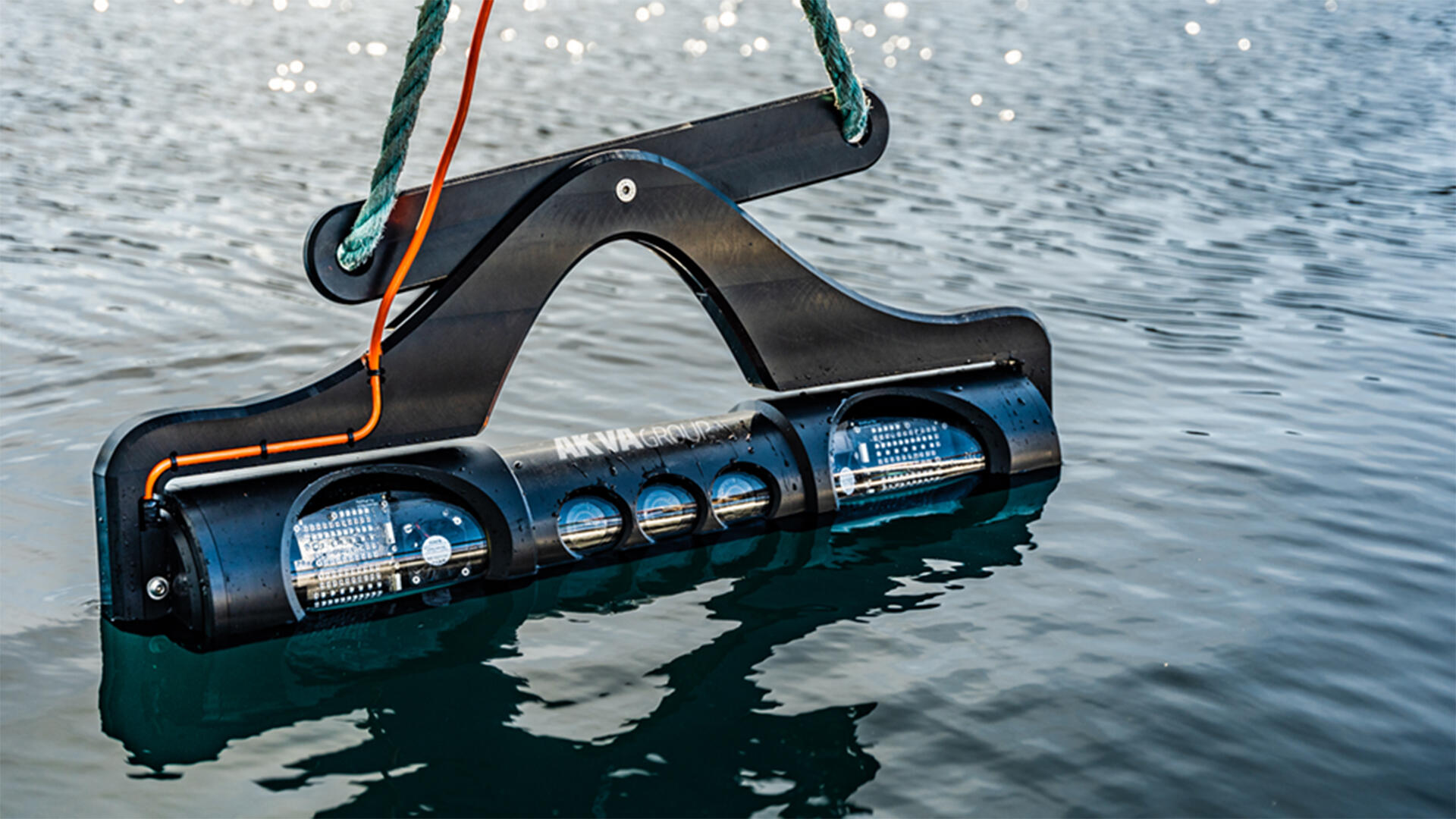 AKV Submerge's sensors require minimal maintenance, as they incorporate self-cleaning technology designed to remove biofilm and cleaner fish from the camera lens. (Image credit: AKVA group)
AKV Submerge's sensors require minimal maintenance, as they incorporate self-cleaning technology designed to remove biofilm and cleaner fish from the camera lens. (Image credit: AKVA group)
AKVA group have extensive expertise in crafting specialized cameras tailored specifically for the aquaculture industry. AKVA submerged represents the latest advancement in this field, utilizing artificial intelligence technology to accelerate and enhance data collection processes.
"We are experiencing great interest in deep farming, which requires waterborne feeding. Hybrid waterborne feeding enables deep farming and reduces the energy consumption related to feeding. It is both cost-effective and time-saving," says Arnstein Hosaas, Director of Innovation at AKVA group.


